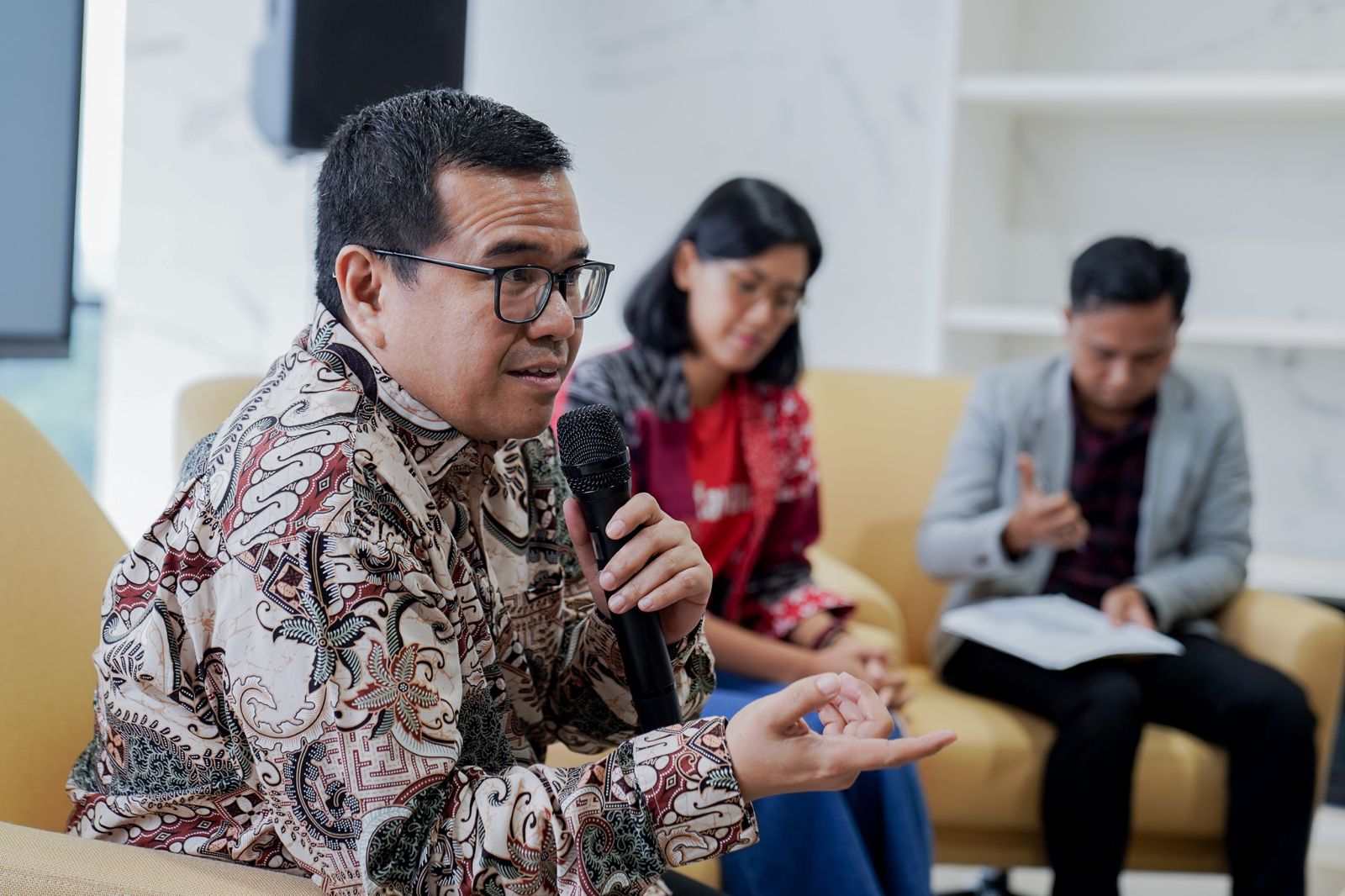Sustainable Commuting: Pedaling Towards a Greener Tomorrow with UIII Bicycles
December 22, 2023Contributor: Nouha Khelfa | Editor: Ari Stoltze

UIII.AC.ID, DEPOK - Universities are making great efforts to make the world a better place in the era of global environmental sustainability concerns. Universitas Islam Internasional Indonesia (UIII) is privileged to be associated with this good change through the Green Planet Project, which works towards reducing carbon footprints and promoting eco-friendly transport choices. In this context, one example would be the distribution of bicycles to students that helps produce a culture of sustainable commuting while reiterating the importance of environmental stewardship.
UIII recognizes the environmental impact of conventional transport methods such as cars that emit carbon dioxide. To address this problem, UIII established a program that offers students bicycles for transportation as a green and sustainable initiative. This will help us reduce greenhouse gas emissions, ease traffic congestion and improve health standards among students through encouraging biking.
Bicycles are a zero-emission mode of transportation, making them an ideal choice for environmentally conscious individuals. By choosing bicycles over motorized vehicles, students actively contribute to reducing air pollution and lowering greenhouse gas emissions, aligning with the UIII’s commitment to a sustainable future. Sonia Saadah, a Ph.D. candidate in political science at UIII, has used a UIII bicycle since 2022 when she was a master’s student in the same department, “my best means of transportation is the bike because it combines environment protection from pollution and energy saving, it is also a great daily exercise before going to class”.
The health benefits of biking include physical exercise good for cardiovascular health, stress reduction and just general wellbeing. It will not only keep our environment clean but also improve the overall health and fitness of our students. Sadia Abbassy, a master student at UIII, who resides in UIII student apartments, has started using one of UIII bicycles since 2023, ‘I am using the bicycle which UIII provided us some months back. I enjoy it while riding in campus and it has good impact on my health and safe the environment”.
To run a bicycle is cheaper than to maintain and fuel motorized transport. Offering bikes to students on an institutional basis can cut transport costs leading to less expensive and more available education. Bicycles assist to decrease traffic congestion on and around campus, resulting in a more effective and streamlined transportation system. As a result, the whole campus experience for students improves, and the community becomes more sustainable and harmonious.
Not only does UIII supply bikes, but it is also committed to promoting environmental sustainability. UIII foster cycling through the provision of bike lanes; this makes the campus open for all students who wish to ride bicycles to class or for any other purpose. These initiatives aim to create an environment in which biking is encouraged and easily accessible by all people. Saemah, a Ph.D. candidate at UIII, expressed her joy when using her UIII bicycle every day,” Getting the UIII bicycle has been very beneficial. Initially, the joy of learning to use it turned into a daily source of happiness. Navigating the empty roads of the university on my bicycle has become a cherished routine, providing a refreshing break from academic pressures. Also, cycling regularly has become an enjoyable form of exercise, boosting my energy levels and contributing to a positive mindset. The convenience of the bicycle has also made commuting to the university in harsh weather conditions a breeze, overcoming the challenges of walking,”
We negotiate climate change impacts as a symbol of sustainability by engaging in activities such as Green Planet Project. By providing bicycles for their transportation needs, we are enabling them to be the instruments of change in terms of adopting green commuting patterns and thus making the earth cleaner. Together, we can shape a more sustainable future where universities take an important role in shaping environmentally conscious leaders.
- Key Social Science Debates in Islamic Studies: Insights from Prof. Stéphane Lacroix at UIII
- Indonesia Introduces New Approach to Enhance Students’ Higher-Order Thinking
- Sex Trafficking Disguised as Secret Marriage: Dr. Zezen’s Lecture at SOAS University of London
- Islam and National Identity: Dr. Andar Nubowo on Indonesia’s Moderate Islamic Framework
- Green Ramadan: A Sustainable Initiative in the Sacred Month
- Prof. Dr. Phil. Sahiron: Bridging Classical and Contemporary Quranic Studies
- Joel N. Lohr on Indonesia, Higher Education, and Intercultural Dialogue
- Prof. Sahiron Syamsuddin Affirms Ministry’s Support for UIII-Al Azhar Partnership
- 'Indonesia Has Strong Commitment to Islamic Knowledge': Al-Azhar Rector at UIII
- A Green Awakening: How Indonesia’s Muslim Communities Are Leading the Charge for Sustainability


